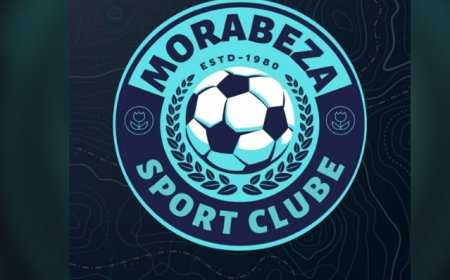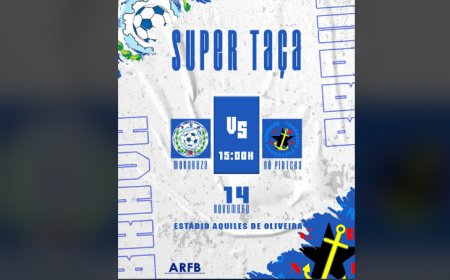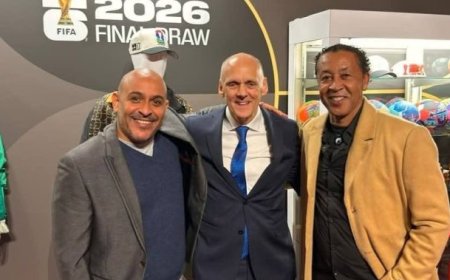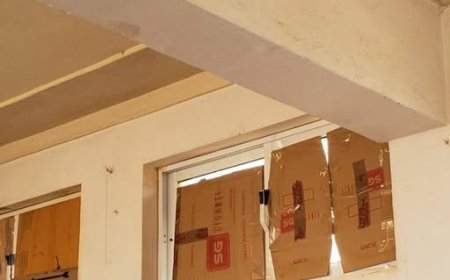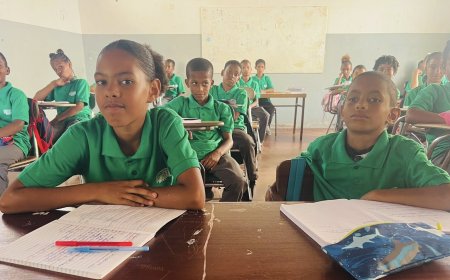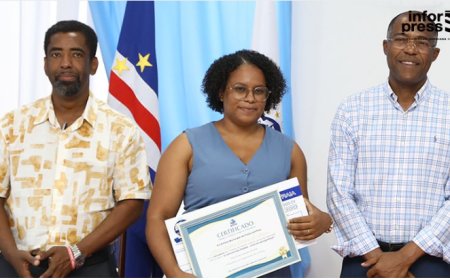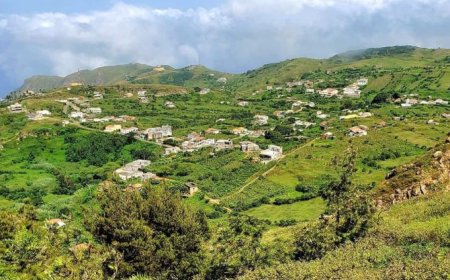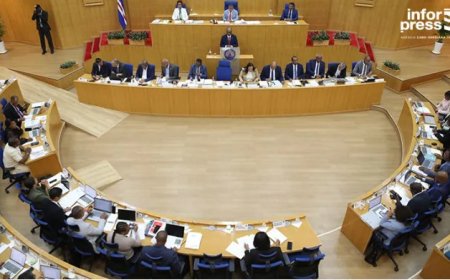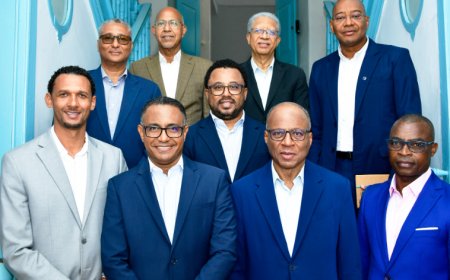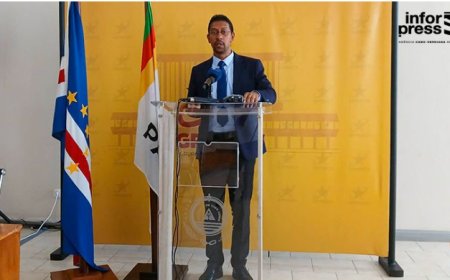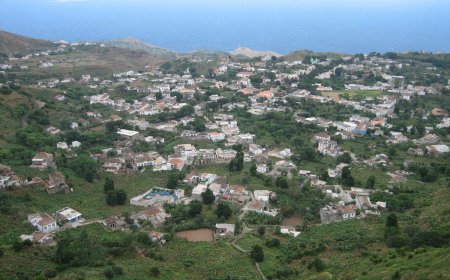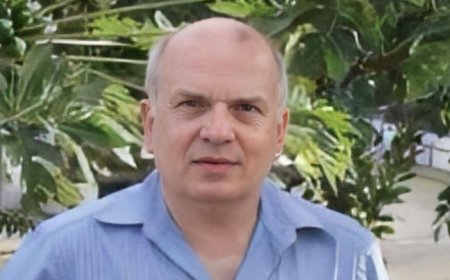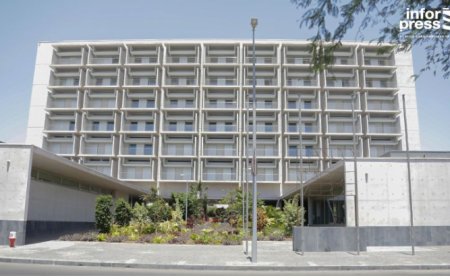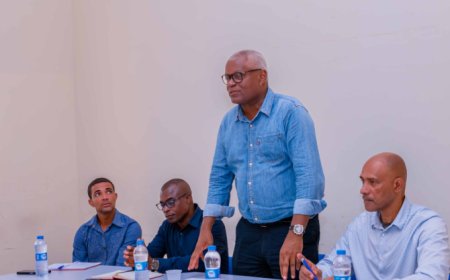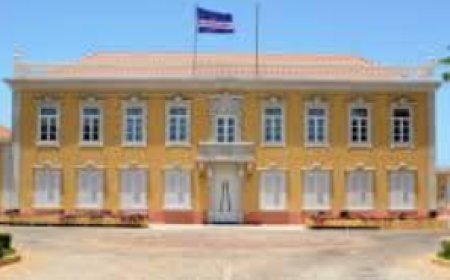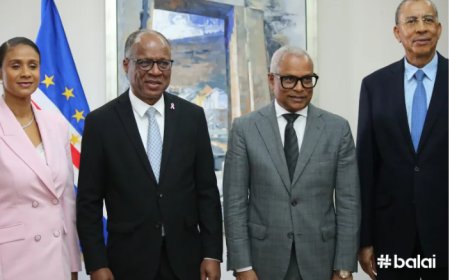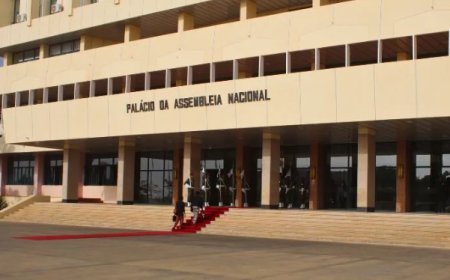Cape Verde must work men to avoid consequences for excessive masculinity – LBCV president
The president of Laço Branco de Cabo Verde (LBCV) argues that the country should change its focus and start working with men to avoid the consequences that turn women into the biggest victim of excessive masculinity.

The president of Laço Branco de Cabo Verde (LBCV) argues that the country should change its focus and start working with men to avoid the consequences that turn women into the biggest victim of excessive masculinity.
The president of Laço Branco de Cabo Verde (LBCV) argues that the country should change its focus and start working with men to avoid the consequences that turn women into the biggest victim of excessive masculinity.
Clóvis Silva made this statement in an interview with Inforpress to talk about men's attitude towards the need to pay more attention to their own health and more awareness of issues related to equality and equal rights between men and women, within the scope of the International Day of Man who marks himself today, November 19th.
Among the various justifications for men taking little care of their health and violating rights related to gender equality and equity, Clóvis Silva explains the issue of health as a cultural issue in which it is created and motivated by society as someone who must “endure the pain since the fact of showing it is cowardice” and therefore seeking a doctor and going to the hospital is seen as “fragility”.
“All of this, subconsciously, leads men to give the impression that they are strong and that nothing can shake them. And when we look at the statistics, we realize that men hardly ever go to the doctor, except in extreme cases”, he said, stating that this attitude has its downfall in education.
He also underlined that Cape Verdean society must fight to give the same education intended for women to men, since the idea is instilled that women should take care of their image and their health, while no one tells men what to do. to do.
“The idea of care must begin to be passed on to the boys so that they learn to take care of their image and health. The issue of pain is also linked to complaints and teachings that men should not cry when they feel pain, but pain is the same in any human being and is a sign that something is not right”, he advocated.
As for the issue of rights, he assured that the same thing happens with regard to health, emphasizing that families and students teach boys certain behaviors and that breaking rules is the most normal thing, conveying the idea of the “powerful male” who can do anything.
Regarding this issue, Clóvis Silva said that families are failing in their children's education by making the distinction between "man and woman" and what they should and should not do.
"Society and school are failing in this teaching that becomes so natural to man due to our macho culture", he recalled, also pointing to social causes, family structures, the problem of parental absence and lack of care as responsible for this attitude.
He also recognized that it is a stereotype that will not be fought from one moment to another, but warns of the need to start talking about the subject in schools and families so that the boys have a different reality of life.
“Just see that in our society we have more men in conflict with the law than women”, he emphasized.
Referring to the Cabo Verde White Ribbon, Clóvis Silva stressed that the organization has been working on these concepts, since its existence is linked to the change in male behavior.
“Masculinity is not transmitted only by men, but is essentially in the characteristics of men and we as an organization are not managing to reach men because they hardly participate in events”, he said.
In this process, he admits the need to work on the male mentality so that he is open to receiving and sharing information, underlining that to bring men to reality the organization has been using effective groups in prisons and training in order to have multipliers of information.
He also stressed that due to the limited financial resources, Laço Branco Cabo Verde has used volunteers to help share information.
Clóvis Silva also highlights the fact that the Cape Verdean Institute for Gender Equality and Equity (ICIEG), despite being an institution that must work on the issue of gender equality, has worked more with a focus on women than on men. men.
He also recalls that the State itself has been working more on the consequence than on the cause, claiming that when women are supported, they are working after the violence and at the point where the force occurs.
“We must start working on men's education so that we can reap more consistent results in terms of gender equality”, he said, highlighting the need to work with men throughout the year and not just on commemorative dates.
According to Clóvis Silva, if the responsible institutions manage to enter schools, the armed forces and sport, the state of things will change.
“We are doing the minimum and we have to think about it, because we are in a difficult situation in which violence is taking over the country due to the exercise of toxic masculinity”, he stressed, calling on the man to think about the consequences of exercising his masculinity.
The president of Laço Branco de Cabo Verde concludes by stating that any man who exercises positive masculinity in relation to his son and father is making a difference in terms of gender equality.
International Men's Day has been celebrated since 1999, the initiative having started in Trinidad and Tobago where it was triggered by Jerome Teelucksingh and supported by the UN and various groups defending men's rights in Europe, North America, Africa and Asia.
The date aims to promote positive male role models, with decent and honest lives, celebrate positive male contributions to society, promote male health, improve gender relations and combat sexism.
The date is celebrated in November, the month in which attention is drawn to the Blue November campaign whose main motto is care for the prostate and diseases related to that organ.







